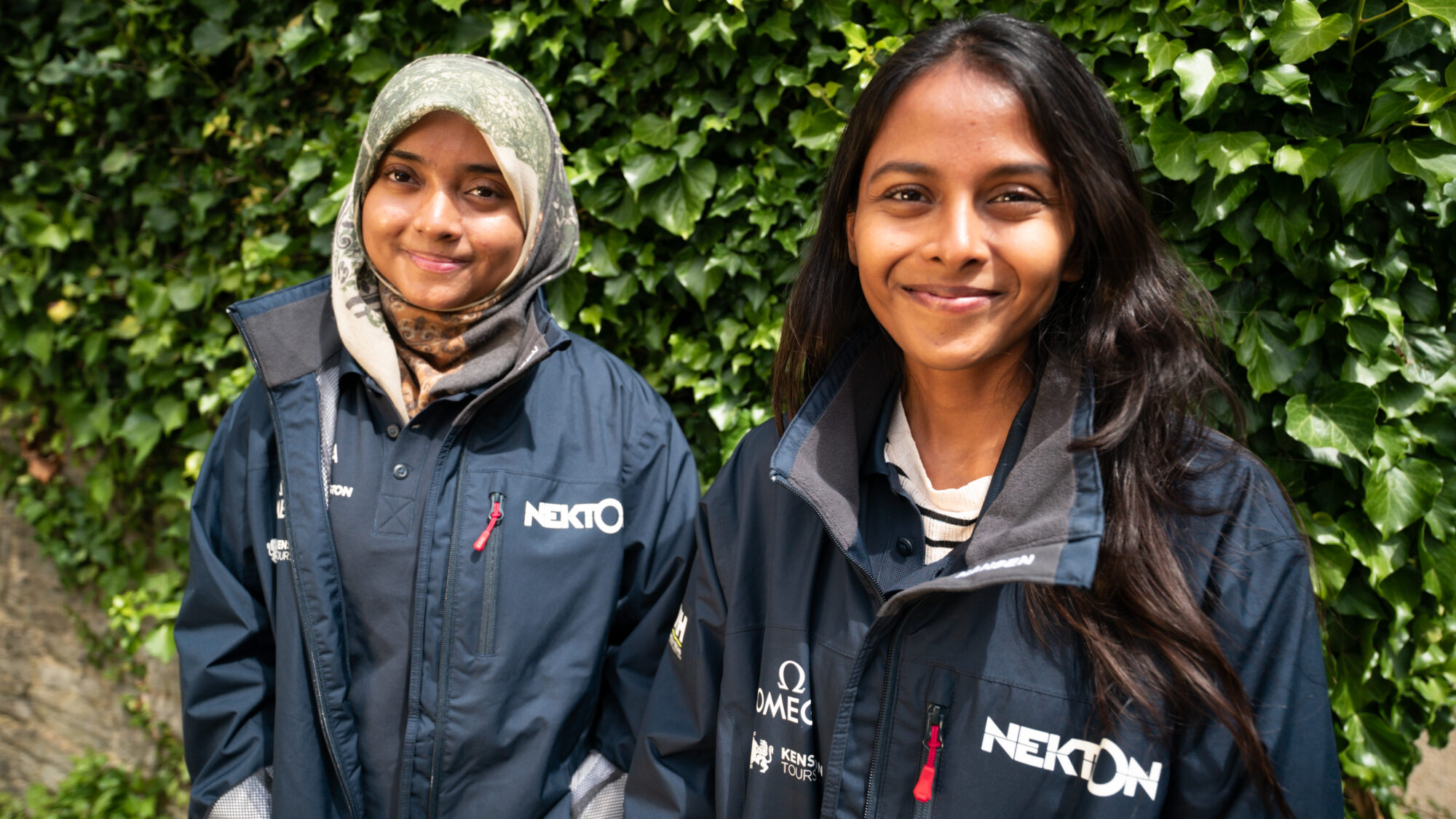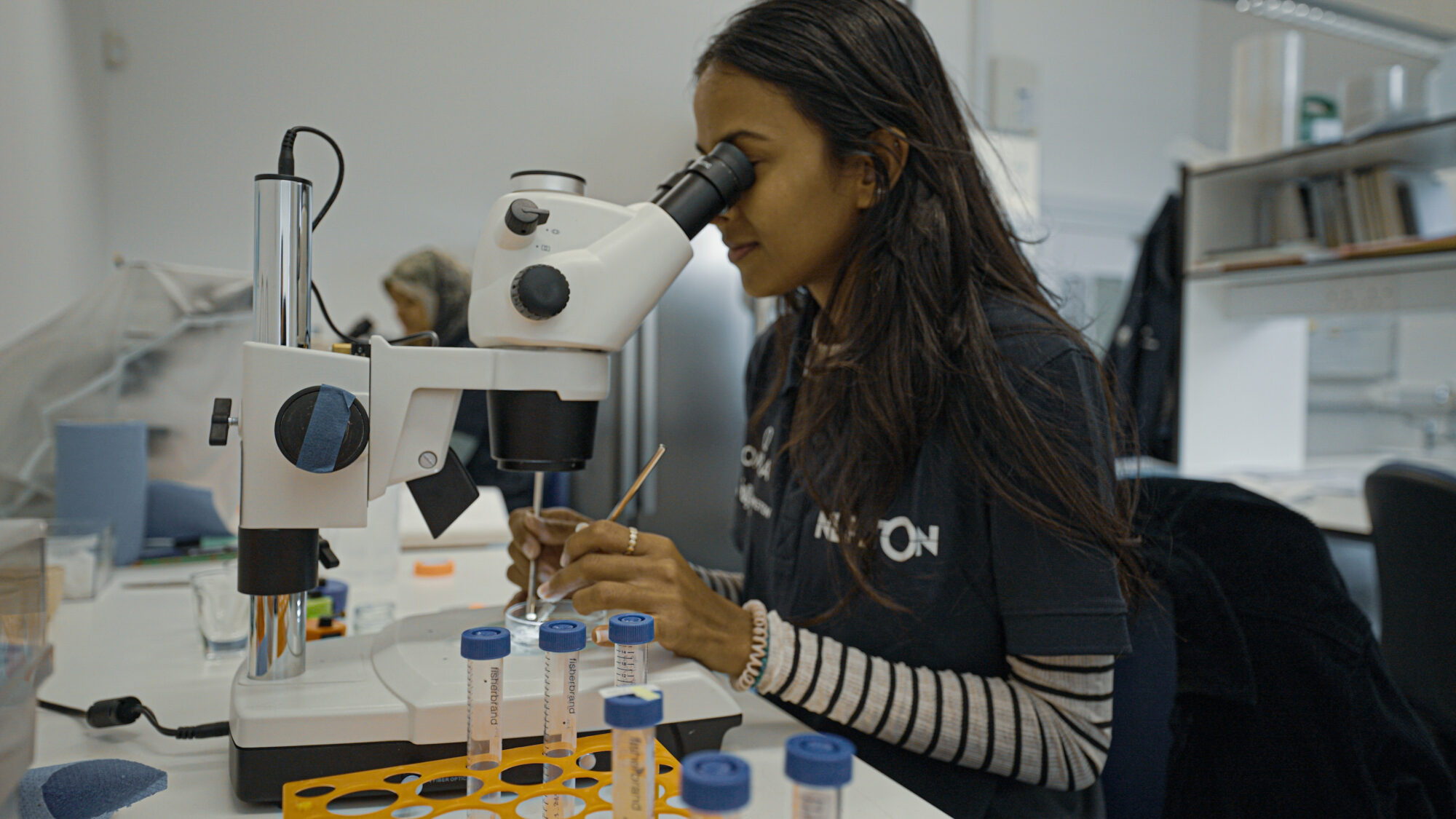

The vibrant marine ecosystems of the Maldives have long been a source of wonder and inspiration for scientists. The Nekton Knowledge Exchange programme, part of the First Descent: Maldives mission, continued in Oxford, July 2024.
Among those passionate about studying these ecosystems are Enas Mohamed Riyaz (Tonti), Senior Environment Analyst at the Environmental Research & Conservation Section of the Maldives Environmental Protection Agency, and Irthisham Hassan Zareer (Iru), Research and Outreach Coordinator at the Maldives Whale Shark Research Programme. These two dedicated researchers are embarking on a unique journey through the Zooplankton Knowledge Exchange Fellowship, jointly organised by Nekton and the Maldives Marine Research Institute (MMRI).
These two dedicated researchers are embarking on a unique journey through the Zooplankton Knowledge Exchange Fellowship

With over six years of experience in environmental conservation, Tonti has been making significant strides in field ecology as part of the Maldives Environmental Protection Agency. Her enthusiasm for studying invertebrates shines through as she delves into the diverse world of marine organisms.
“What I enjoy most about working with invertebrates is that there’s just so much diversity,” says Tonti. “There hasn’t been much work done on them in the Maldives, so it’s really exciting for me to look into the different groups that have been found.”
Tonti’s interest in taxonomy stems from her desire to strengthen this discipline in the Maldives, where taxonomists are few. “I think taxonomy is a bit of a dying skill because there aren’t many taxonomists around,” she notes. “It’s constantly being discussed how few there are. You need to know the fundamentals of what you’re working with.”
“We don’t have a natural history museum in the Maldives, but with all the samples and specimens being collected, I hope there will be a day when we need taxonomists to catalogue the specimens we have in the country.”
Her aspirations extend beyond the Maldives, aiming to enhance taxonomy globally. The collaborative nature of the Zooplankton Knowledge Exchange Fellowship provides her with a platform to share her expertise and gain new insights.
“The team is very friendly, and it’s a good work environment. I would definitely recommend applying for similar knowledge exchange fellowships—for scientists from the Maldives and beyond.”
I would definitely recommend applying for similar knowledge exchange fellowships—for scientists from the Maldives and beyond

Iru, from the Maldives Whale Shark Research Programme, has also embarked on this exciting fellowship journey. Her primary focus is on understanding zooplankton and acquiring the skills necessary to study these fascinating organisms.
“My work in the Maldives is primarily with whale sharks,” she explains. “They are filter-feeding species, so they feed on plankton. I think it’s really important to understand plankton’s feeding patterns and possibly their health in the future.”
Iru’s curiosity about the unseen wonders of the ocean drives her passion for marine science. Her dedication to understanding megafauna, such as sharks and rays, extends to uncovering the mysteries of smaller, often overlooked marine life.
“For me, the thought of not really knowing what’s out there is what really inspires me,” says Iru. “I’m curious to see all the little things that don’t get the same level of attention.”
Growing up without many local role models in marine conservation, Iru understands the power of inspiration. “The idea of people being inspired to go into marine science is one of the most important things,” she reflects. “Growing up, I didn’t know many marine conservationists or scientists, especially in my pre-teen years.”
“Now, with social media, you can be inspired by what’s happening in your community and see the really cool projects going on. I think that brings about a sort of confidence that, you know, you can do cool things as well.”
Through the fellowship, Iru hopes to develop a study on zooplankton in the Maldives. With guidance from experts like Nuria Rico Seijo, who leads zooplankton studies at Nekton, she aims to create a comprehensive study that will advance knowledge and conservation efforts.
“I feel it could really help me develop a study back home in the Maldives when I return,” she shares. “Then hopefully, with the help of Nuria, we’ll be able to develop proper concepts and methodologies, and work on collecting samples to create a study in the Maldives.”
The idea of people being inspired to go into marine science is one of the most important things